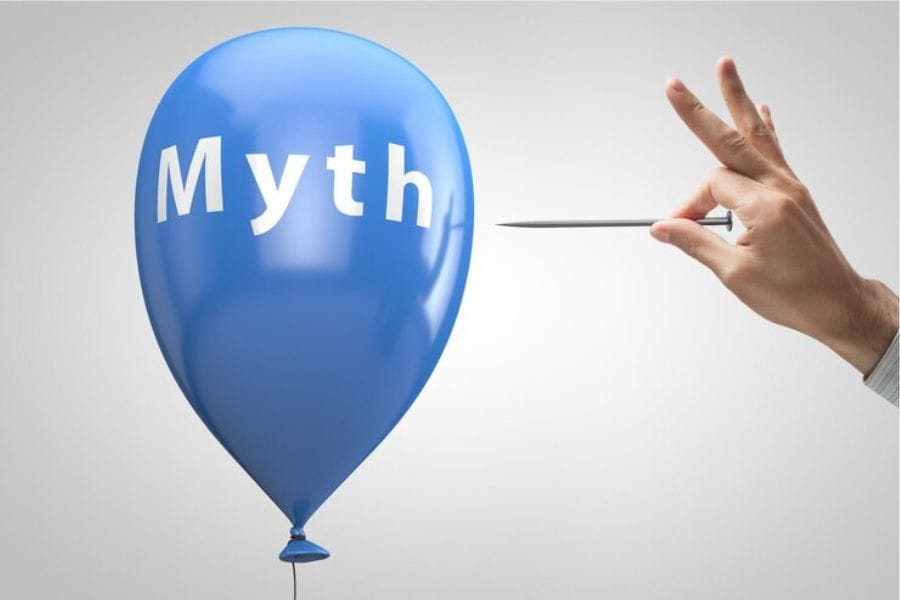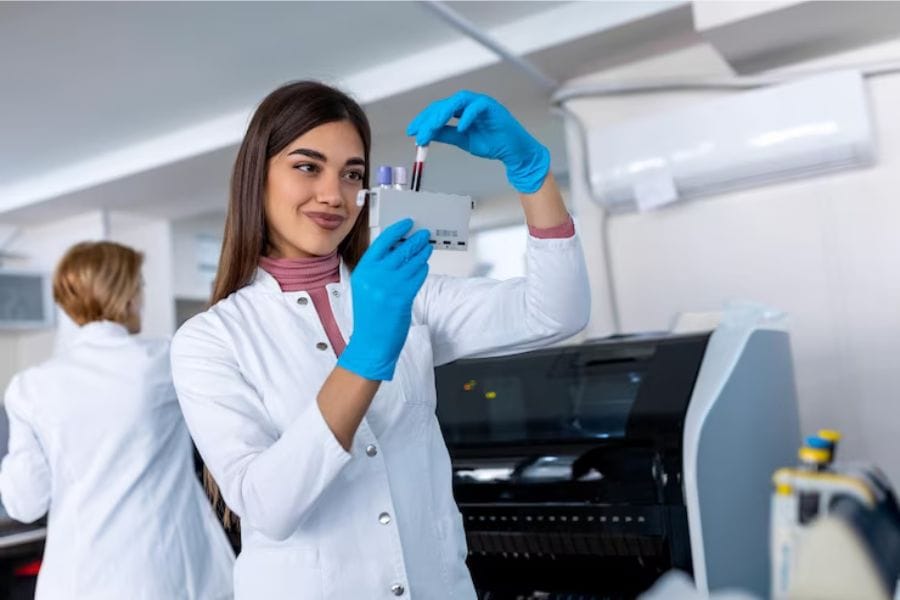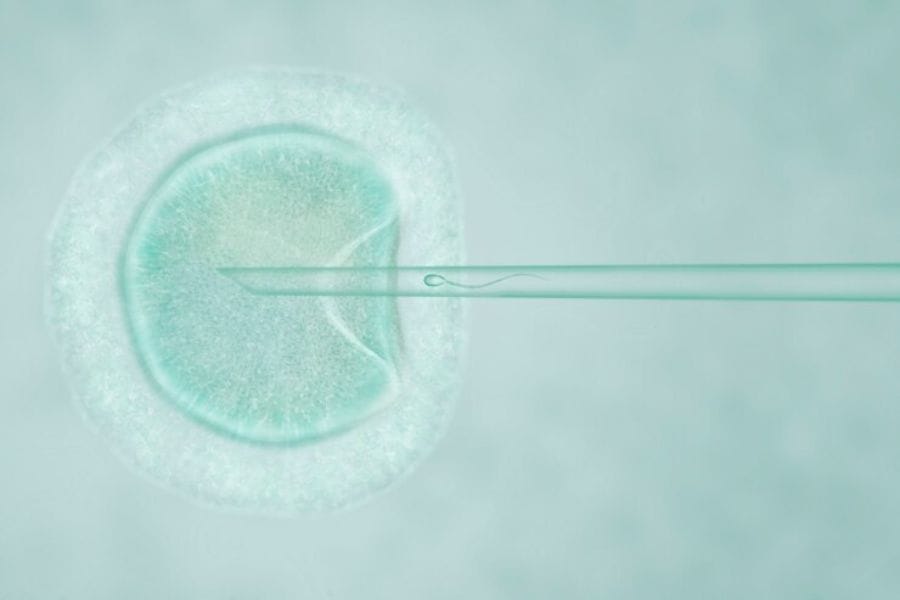Separating Fiction from Reality: Egg Freezing Myths and Facts
Introduction
Egg freezing, also known as oocyte cryopreservation, is a medical procedure that allows women to preserve their fertility by freezing and storing their eggs for future use. This process involves stimulating the ovaries to produce multiple eggs, retrieving them, and then freezing them at ultra-low temperatures. Egg freezing is a valuable option for women who may wish to delay childbearing due to various reasons, including career goals, medical conditions, or personal circumstances. It provides the opportunity to increase the chances of having a biological child later in life when natural fertility may decline.
In the context of egg freezing, separating fact from fiction ensures that people understand the true benefits, risks, and limitations of the procedure. This promotes responsible and realistic choices regarding fertility preservation, reducing the likelihood of misconceptions leading to misguided decisions. Accurate information also fosters trust in medical practices and helps individuals make choices aligned with their life goals and reproductive health, ultimately improving their overall well-being and reproductive outcomes.
Myths Surrounding Egg Freezing
Myth 1: “Egg freezing is only for women who delay motherhood.”
One prevalent misconception surrounding egg freezing is that it’s exclusively meant for women who choose to postpone motherhood. This myth often implies that egg freezing is solely a last resort option for career-focused women who wish to extend their fertility window. While it’s true that egg freezing can be a valuable resource for women who want to preserve their fertility while pursuing other life goals, this myth oversimplifies its purpose.
In reality, egg freezing is a versatile fertility preservation technique that caters to various circumstances. Women facing medical conditions that could impact their fertility, such as cancer treatment, may benefit from egg freezing. Additionally, those who have not yet found the right partner or are not ready for motherhood due to personal reasons can also explore this option.
Egg freezing empowers women to make choices about their reproductive health on their own terms. It is not exclusively for those who delay motherhood; rather, it offers reproductive flexibility to women in different life situations, allowing them to take control of their future family planning without undue time pressure. Dispelling this myth is crucial in ensuring that all women are aware of the options available to them for preserving their fertility.
Myth 2: “Egg freezing is 100% guaranteed to result in a successful pregnancy.”
One common misconception surrounding egg freezing is the belief that it offers an ironclad guarantee of achieving a successful pregnancy. This myth stems from a misunderstanding of the technology’s capabilities. In reality, egg freezing is a valuable tool for fertility preservation, but it is not a foolproof solution.
The success of egg freezing depends on numerous factors, including the woman’s age at the time of freezing, the quality of the eggs, and the expertise of the fertility clinic. While younger women often have higher-quality eggs that freeze more effectively, there are no guarantees. As eggs age, their viability decreases, which means that freezing eggs at a younger age generally yields better results.
It’s crucial for individuals considering egg freezing to understand that while it significantly improves their chances of conceiving later in life, it does not eliminate all potential fertility challenges. Many factors influence pregnancy success, including the health of the partner’s sperm, the woman’s overall health, and the success of the fertilization and implantation processes.
In summary, egg freezing is a valuable option for fertility preservation, but it is not a guaranteed pathway to pregnancy. Realistic expectations and consultation with a fertility specialist are essential to make informed decisions about this procedure.
Myth 3: “Egg freezing is dangerous and can harm your health.”
The myth that “egg freezing is dangerous and can harm your health” is a common misconception that needs to be debunked. In reality, egg freezing is a safe and well-established medical procedure with a low risk of adverse health effects when performed by experienced professionals in a reputable fertility clinic.
Egg freezing involves a carefully controlled process where a woman’s eggs are extracted, flash-frozen, and stored for future use. The procedure is performed under the supervision of skilled fertility specialists who prioritize patient safety.
Potential risks associated with egg freezing are generally minimal and include mild discomfort, bruising, or a slight risk of infection at the injection site. Severe complications are extremely rare. Moreover, the hormones used for ovarian stimulation during the process are administered in controlled doses and monitored closely to prevent overstimulation.
It’s essential for women considering egg freezing to consult with a qualified fertility specialist who can assess their individual health and provide personalized guidance. By debunking this myth and emphasizing the safety precautions in place, individuals can make informed decisions about preserving their fertility options without undue concern for their health.
The Facts of Egg Freezing
Fact 1: “Egg freezing offers a chance at parenthood when timing is an issue.”
Egg freezing, also known as oocyte cryopreservation, has emerged as a promising solution for individuals and couples facing timing constraints in their family planning journey. This reality dispels the myth that egg freezing is solely for those who wish to delay parenthood.
One of the significant advantages of egg freezing is its ability to preserve a woman’s fertility potential at a specific point in time. This is particularly valuable for women who face medical treatments, such as chemotherapy, which may impact their fertility, or for those who have yet to find the right partner or who want to prioritize their careers or other life goals before starting a family.
By undergoing the egg freezing process, women can effectively “pause the biological clock.” Eggs are harvested at their peak quality and preserved until they are ready to embark on parenthood. This empowers individuals to take control of their reproductive choices, ensuring that when the time is right, they have the option to pursue pregnancy using their younger, healthier eggs.
In conclusion, egg freezing extends the window of opportunity for parenthood, making it an invaluable tool for those navigating the complex interplay of life’s various demands and aspirations while safeguarding their fertility potential.
Fact 2: “Success rates depend on various factors.”
Egg freezing is a promising fertility preservation option, but its success rates are influenced by several factors. Firstly, a woman’s age plays a significant role. Younger women tend to have healthier eggs, making them more likely to achieve successful pregnancies when they decide to use their frozen eggs.
Secondly, the number of eggs retrieved and successfully frozen is crucial. A higher quantity of quality eggs provides better odds for future success. The ovarian response to stimulation medications can differ from person to person, affecting the egg yield.
The expertise of the fertility clinic and the skill of the medical team also impact success rates. Clinics with experienced professionals tend to have better outcomes.
Underlying health conditions, such as polycystic ovarian syndrome (PCOS) or endometriosis, can affect a woman’s fertility and subsequently her chances of success with frozen eggs.
Lastly, the reason for pursuing egg freezing matters. Women freezing their eggs due to elective reasons, such as career planning, often have better success rates compared to those freezing their eggs due to medical conditions affecting fertility.
In conclusion, while egg freezing is a valuable option, understanding that success rates depend on age, egg quantity and quality, clinic expertise, health conditions, and the reason for freezing is essential for making informed decisions about fertility preservation.
Fact 3: “Egg freezing is generally a safe procedure.”
Egg freezing is generally a safe procedure that has become a valuable tool in modern reproductive medicine. Medical advancements and rigorous safety standards have made this technique increasingly secure for women considering fertility preservation.
The safety of egg freezing primarily lies in the careful monitoring and control of the ovarian stimulation process. Fertility specialists administer hormones to stimulate egg production, closely monitoring the patient’s response to minimize risks. During the egg retrieval, a minimally invasive procedure, a transvaginal ultrasound-guided needle is used to extract the eggs, a process that carries a low risk of complications.
While like any medical procedure, there are potential side effects, such as mild discomfort, bloating, or rare complications like infection or bleeding, these risks are generally minimal when performed by skilled professionals in accredited clinics. Additionally, the vitrification (fast-freezing) method used for egg preservation has significantly reduced the risk of ice crystal formation, ensuring the integrity of the eggs.
It’s essential to consult with a qualified fertility specialist who can assess individual health factors and provide personalized guidance. Overall, the safety record of egg freezing, when performed under appropriate medical supervision, supports its viability as a safe option for preserving reproductive potential.
Wrapping It Up
Egg freezing is a remarkable advancement in reproductive technology that offers women more control over their fertility. However, it’s essential to separate fact from fiction to make informed decisions about this procedure. While egg freezing can provide hope and options for women, it’s not a guaranteed path to parenthood, and it comes with its own set of considerations and challenges.
Schedule a consultation or visit Womb IVF and Fertility Center today to discuss your individual needs and explore the possibilities that egg freezing can offer in preserving your fertility and achieving your family planning goals.
Image Reference: freepik.com





